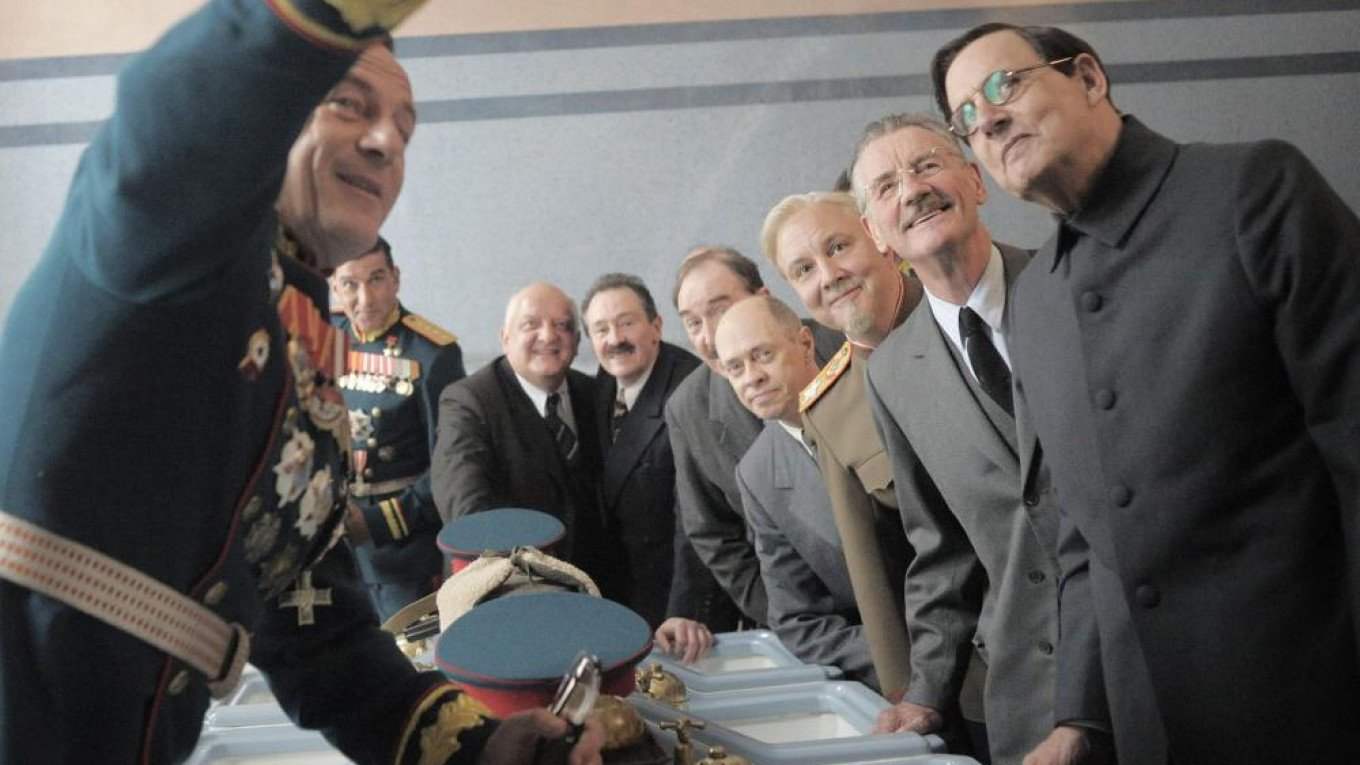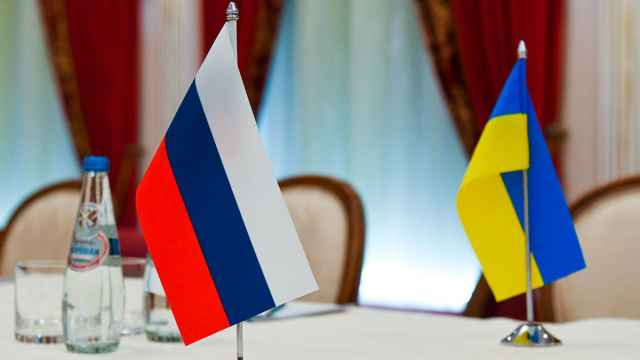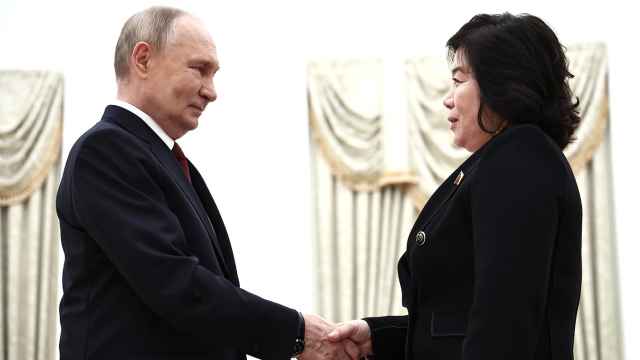The Russian Culture Ministry’s public council should pre-screen a satirical movie on the death of Soviet dictator Josef Stalin to avoid repeating the ongoing controversy over a Tsar Nicholas II biopic, a senior council member told the Govorit Moskva radio station on Monday.
Scottish director and writer Armando Iannucci’s “The Death of Stalin,” based on a graphic novel of the same name, is slated for release in Europe and North America next month.
Concerns reportedly arose that Russia’s communists could resort to violence to protest the film’s screening in the country, borrowing from a fundamentalist Orthodox group’s threat to burn cinemas if they showed “Mathilde.”
“Mathilde,” which depicts Tsar Nicholas II’s love affair with Polish ballerina Mathilde Kschessinska, has riled Orthodox activists. A major cinema chain said they wouldn’t show the film last week, after Russia’s National Film Foundation did the same hours after two cars were set on fire outside its director’s lawyer’s office.
Pavel Pozhigaylo, deputy chairman of the Culture Ministry’s public council, told Govorit Moskva on Monday that Russia’s communists might take offense at the satirical depiction of Stalin.
“If the film about Stalin is as provocative as ’Mathilde,’ then it should not be released,” Pozhigaylo said. “We will ask that not only the members of the Culture Ministry, but also members of the public council, are able to watch it."
“If there is a danger, we will insist that it is not issued a distribution certificate.”
Asked about concerns that the movie’s screening could elicit backlash from Russia’s communists, Kremlin spokesman Dmitry Peskov told reporters on Monday that he hadn’t heard of the British-French production.
However, he noted that the Culture Ministry “always approaches the issue of distribution certificates extremely responsibly.”
A Message from The Moscow Times:
Dear readers,
We are facing unprecedented challenges. Russia's Prosecutor General's Office has designated The Moscow Times as an "undesirable" organization, criminalizing our work and putting our staff at risk of prosecution. This follows our earlier unjust labeling as a "foreign agent."
These actions are direct attempts to silence independent journalism in Russia. The authorities claim our work "discredits the decisions of the Russian leadership." We see things differently: we strive to provide accurate, unbiased reporting on Russia.
We, the journalists of The Moscow Times, refuse to be silenced. But to continue our work, we need your help.
Your support, no matter how small, makes a world of difference. If you can, please support us monthly starting from just $2. It's quick to set up, and every contribution makes a significant impact.
By supporting The Moscow Times, you're defending open, independent journalism in the face of repression. Thank you for standing with us.
Remind me later.






